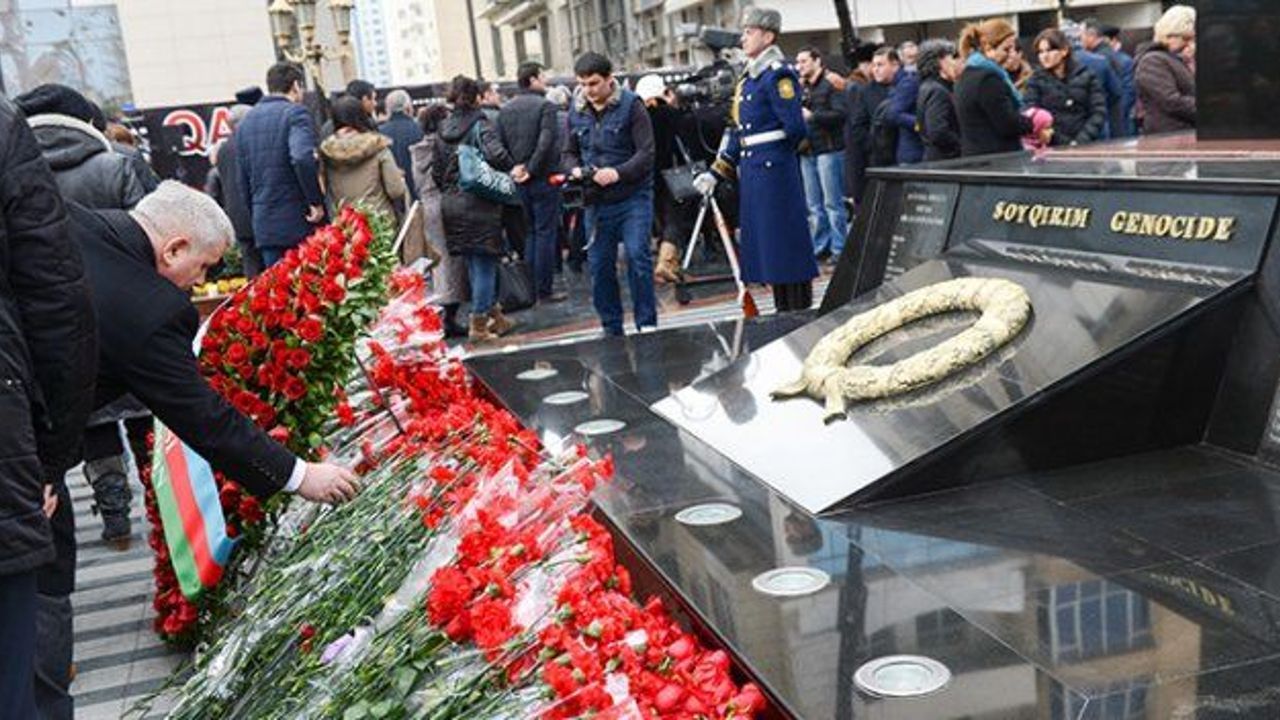Khojaly tragedy was ‘genocide’, Turkish think tank says
Several Turkish and Azerbaijani experts have said the 1992 Khojaly massacre should be defined as a genocide.

Istanbul-based Caspian Strategy Institute published a report titled "Khojaly Genocide" on the 24th anniversary of the event, purporting to show the extent of damage caused by the Armenian occupation in Azerbaijan’s western areas.
In a press conference at the institute, Azerbaijani parliament member, Ganira Pashayeva, criticized the international community for preferring the term massacre to genocide.
“It’s clear that it is a genocide according to the United Nations convention,” he said. “A group of people were killed because of their ethnic origin and religious belief [in Khojaly].”
The UN limits the use of the term genocide to “acts committed with intent to destroy, in whole or in part, a national, ethnical, racial or religious group”.
The report published by the institute claims that around 7,000 public buildings, 693 schools, 695 medical facilities and 800 kilometers of roads were demolished.
It also says that the Armenian invasion caused the extinction of the cultural heritage in Azerbaijan as 927 libraries, 464 historic monuments, 44 temples, and nine masjids were destroyed. Nearly 40,000 museum objects were also reportedly lost.
Today, few countries have recognized the tragedy as a genocide.
Armenian forces, assisted by the Russian 366th Regiment, took over the town of Khojaly in Nagorno-Karabakh on Feb. 26, 1992, after battering it with heavy artillery and tanks, which were assisted by an infantry regiment.
The two-hour offensive killed 613 Azerbaijani civilians, including 116 women and 63 children and critically injured 487 others, according to official figures.
Armenia’s invasion of Azerbaijan’s Nagorno-Karabakh territory began in 1988 with minor conflicts, but it evolved into a full-scale war in 1992.
At the end of the war in 1994, Armenian and Azerbaijani delegations held talks over the status of Nagorno-Karabakh under the supervision of the Organization for Security and Co-operation in Europe's Minsk Group.
Those talks have so far produced no results and sporadic clashes still take place between Armenian and Azerbaijani forces.
Currently, Nagorno-Karabakh and seven adjacent districts, which account for more than 20 percent of Azerbaijani territory, are still under Armenian occupation.
Earlier on Friday, Azerbaijani Ambassador to Ethiopia and permanent representative to the African Union, Elman Abdullayev, asked for justice and recognition for Khojaly Massacre.
The Ambassador was speaking at a program organized at the UN Economic Commission for Africa in the Ethiopian capital Addis Ababa to commemorate the victims.
“We are sending a message to the international community to bring to court the criminals involved in the massacre as we commemorate the victims” the ambassador said.
Anadolu Agency







